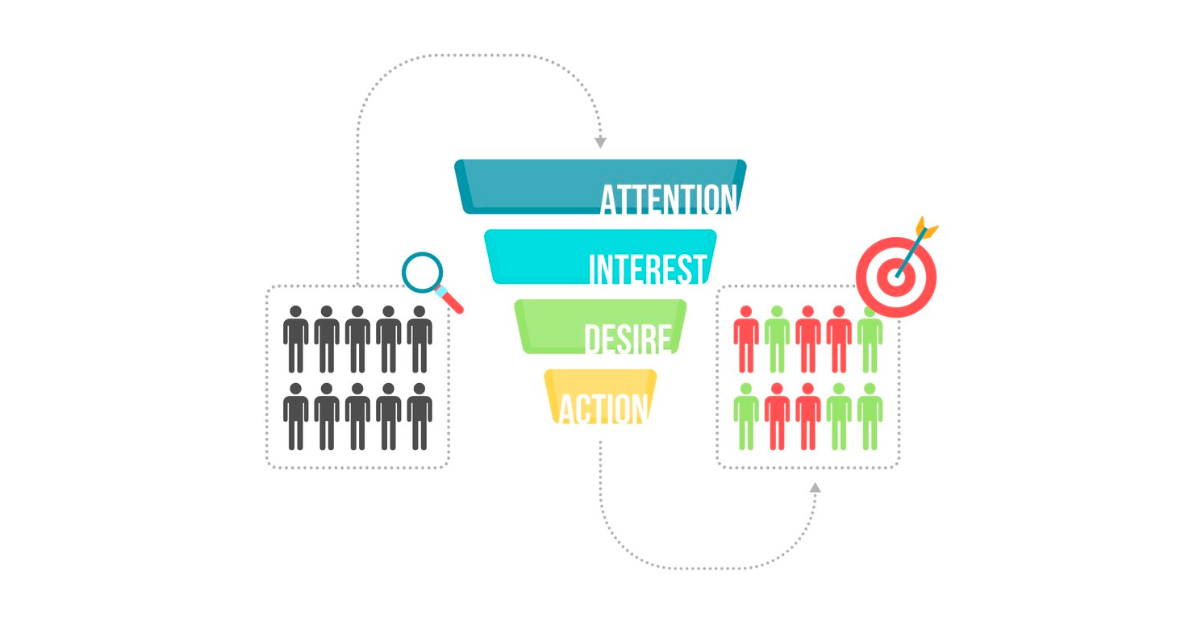Scaling Your E-commerce Business with High Ticket Sales

In the e-commerce landscape, one of the most effective strategies for achieving significant growth is focusing on high ticket sales. This approach involves not just selling more products but selling higher-value items that can dramatically increase profit margins. Such a shift in strategy requires a nuanced understanding of market dynamics, customer preferences, and effective sales tactics. This blog delves into how e-commerce businesses can effectively leverage high ticket items to scale their operations. We'll explore various facets of this approach, including product selection, marketing strategies, customer experience enhancement, and the use of technology to facilitate and streamline high-value transactions.
What is high ticket sales?
High ticket sales refer to the strategy of selling fewer items at a higher price point as opposed to selling a large volume of lower-priced products. This approach typically involves products or services that are of higher value and quality, and therefore, command a higher selling price. The term "high ticket" itself indicates the significant investment from the customer's side. These sales are often characterized by a longer sales cycle, requiring more in-depth marketing efforts and personalized customer service. The goal is to target customers who are willing to spend more for premium products or services. High ticket sales are an effective strategy for businesses looking to increase their profit margins, as selling higher-priced items usually leads to higher profits per transaction compared to selling lower-priced items.
How to get into high ticket sales?
Getting into high ticket sales involves a strategic approach focusing on selling more expensive or premium products or services. Here's how you can venture into this domain:
- Identify Your High Ticket Offer: Start by determining what high-value product or service you can offer. This could be a premium version of your current offerings or a completely new product.
- Understand Your Audience: Know who your potential buyers are. High ticket items often appeal to a specific segment of the market that values quality, exclusivity, or specific benefits.
- Build Expertise and Credibility: High ticket sales require a high level of trust. Position yourself or your business as an expert in your field through content marketing, testimonials, and showcasing your knowledge and experience.
- Focus on Value, Not Price: Your sales pitch should emphasize the value and benefits of your offering, not just its features. Highlight how it solves problems or improves the customer’s situation.
- Personalized Marketing and Sales Approach: High ticket items often require a more personalized approach. Use targeted marketing strategies and one-on-one sales conversations to engage potential buyers.
- Leverage Customer Testimonials and Case Studies: Sharing success stories and testimonials from satisfied customers can significantly boost credibility and persuade new customers.
- Offer Exceptional Customer Service: High ticket businesses expect a high level of service. Ensure that you have an excellent customer service system in place.
- Continuously Learn and Adapt: The market and customer preferences can change, so it's important to stay informed and adapt your strategies accordingly.
High ticket sales funnel

A high ticket sales funnel is a structured approach designed to sell high-value products or services, typically involving a series of steps aimed at gradually guiding potential customers towards making a substantial purchase.
- Awareness and Attraction: The top of the funnel focuses on attracting the right audience through targeted marketing efforts. This involves using strategies like content marketing, paid ads, or social media campaigns to grab the attention of potential high-value customers.
- Education and Engagement: Once potential customers are aware of the product, the next step is to engage and educate them about the value and benefits of the high ticket item. Webinars, detailed guides, and personalized consultations are common methods used at this stage.
- Nurturing and Trust Building: High ticket items often require more consideration. Here, the funnel involves nurturing leads through regular communication, sharing testimonials, case studies, or success stories to build trust and credibility.
- Conversion and Sales: The final stage is where the actual sale happens. This could involve personalized sales calls, demo sessions, or exclusive offers to persuade the customer to make the purchase.
- Post-Purchase Support and Retention: After the sale, the focus shifts to providing excellent post-purchase support to ensure customer satisfaction and foster loyalty, which is crucial for future high ticket sales or referrals.
Identifying High Ticket Products for Your Business

Identifying the right high ticket items for your e-commerce business is a strategic process. Here's how you can pinpoint items that not only align with your brand but also have the potential to significantly boost revenue:
- Market Research: Begin with thorough market research to understand current trends and consumer demands. Look into what high-value items are gaining traction in your industry.
- Analyze Competitors: Study your competitors who successfully sell high ticket items. Note what products they offer and how they market them.
- Understand Your Audience: Consider your target demographic and their purchasing power. High ticket items should resonate with the lifestyle, preferences, and needs of your audience.
- Evaluate Product Value: Assess the intrinsic value of potential products. High ticket items often have a higher quality, exclusivity, or unique features that justify their price.
- Consider Logistics: Factor in the logistics of storing and shipping these products. High ticket items may require special handling or insurance.
- Profit Margin Analysis: Calculate the potential profit margins. High ticket items should offer a significantly higher return compared to lower-priced products.
- Test and Iterate: Start with a small selection of high ticket products and monitor their performance. Use customer feedback and sales data to refine your product choices.
Enhancing Customer Experience for High Ticket Purchases

Enhancing customer experience is crucial for successful high ticket purchases in e-commerce. High-value items naturally come with higher customer expectations, both in terms of product quality and service experience. Here are key strategies:
- Personalized Service: Offer bespoke customer service that caters to the individual needs and preferences of each customer. This could include personalized product recommendations or one-on-one consultations.
- Quality Assurance: Ensure the highest quality standards for high ticket items. Provide detailed product information, high-resolution images, and demonstration videos to reassure customers of their investment.
- Streamlined Purchase Process: Simplify the buying process with a user-friendly website interface, clear navigation, and an easy checkout process. Reducing any friction in the purchase journey is vital for high ticket items.
- After-Sales Support: Provide exceptional post-purchase support. This includes hassle-free returns, warranties, and responsive customer service to handle inquiries and concerns.
- Exclusive Perks: Offer exclusive benefits such as expedited shipping, extended return policies, or loyalty rewards tailored to high-value customers.
High-ticket sales examples
High-ticket sales refer to selling more expensive or premium products or services, typically offering higher profit margins than standard items. These sales are common in various industries and can significantly impact a business's revenue.
Example 1: Luxury Goods: High-end brands in fashion and accessories, like Rolex or Louis Vuitton, focus on selling luxury items. These products, due to their quality, brand value, and exclusivity, command high prices and appeal to a specific market segment.
Example 2: Technology and Electronics: The latest electronic gadgets or high-spec computers, like Apple’s MacBook Pro or high-end gaming PCs, are also high-ticket items. Their advanced features and brand reputation justify their higher cost.
Example 3: Automobiles: Luxury car brands like Mercedes-Benz or Tesla sell vehicles at premium prices. These high-ticket sales come from the vehicles' superior performance, technology, and brand prestige.
Example 4: Real Estate and Property: Selling high-value properties, whether commercial or residential, is another example. The price reflects the property's location, amenities, and market demand.
Example 5: Business-to-Business (B2B) Sales: In the B2B sector, selling high-value machinery or enterprise software solutions are examples of high-ticket sales. These sales often involve detailed negotiation and a long sales cycle due to the significant investment required.
How to do high ticket sales with Manifest AI?

Manifest AI, as a GPT-powered AI sales acceleration platform, plays a crucial role in enhancing high ticket online sales for e-commerce businesses. Here's how it can be impactful:
- Personalizing the Sales Process: Manifest AI analyzes customer data to identify the best communication strategies for each customer, displaying intelligent nudges. This personalization strengthens customer relationships and makes sales messages more effective.
- Identifying and Qualifying Leads: It uses AI to pinpoint potential customers most likely to be interested in a company's products or services, focusing sales efforts on the most promising leads.
- Closing More Deals: Manifest AI offers valuable insights into the sales process, aiding in the identification and overcoming of potential hurdles. This capability assists businesses in closing more deals and achieving sales targets.
Conclusion
In conclusion, scaling an e-commerce business with high ticket sales is a strategic approach that can lead to substantial growth. By carefully selecting high-value products, enhancing the customer experience, and implementing targeted marketing strategies, businesses can significantly increase their profit margins. This approach requires not just selling more, but selling smarter, focusing on quality over quantity. By understanding the unique demands of high ticket sales and adapting business models to meet these requirements, e-commerce businesses can achieve greater success and establish a strong presence in the competitive online marketplace.

.png)
